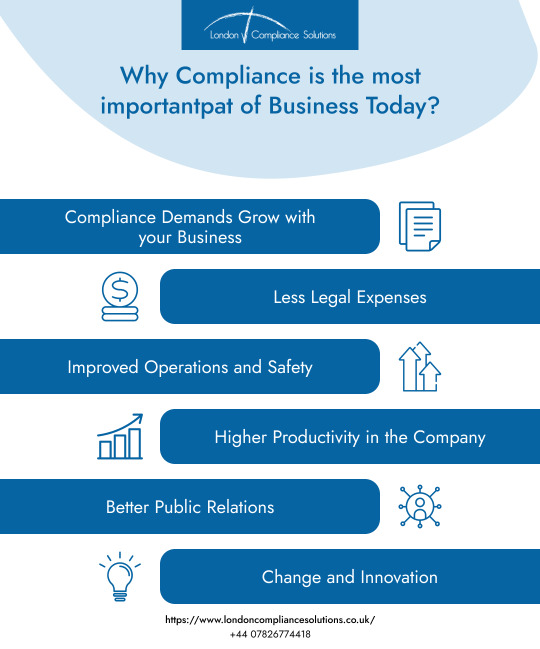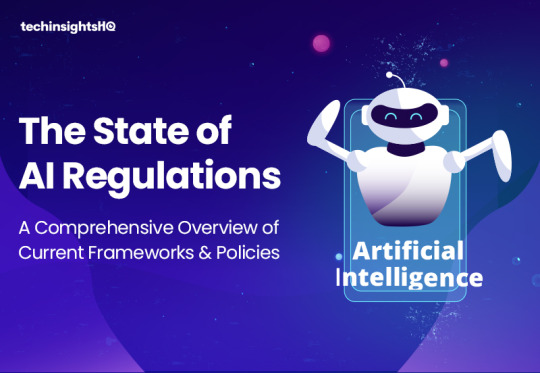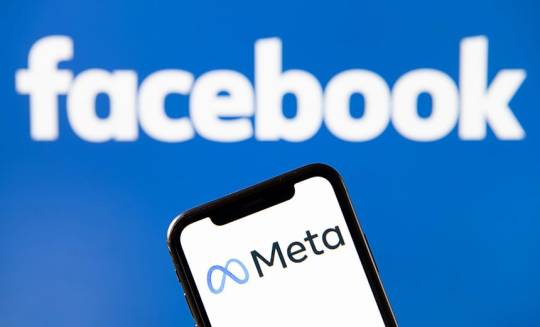#General Data Protection Regulation
Explore tagged Tumblr posts
Link
Go back to the top of this article and reread that transcript of Rep. Buddy Carter grilling TikTok CEO Shou Zi Chew. Now, Carter is a dunderhead, but he’s dunderheaded in a way that illuminates just how bad COPPA enforcement is, and has been, for 25 long years.
Carter thinks that TikTok is using biometric features to enforce COPPA. He imagines that TikTok is doing some kind of high-tech phrenology to make sure that every user is over 13 (“I find that [you aren’t capturing facial images] hard to believe. It is our understanding that they’re looking at the eyes. How do you determine what age they are then?”).
Chew corrects the Congressdunderhead from Georgia, explaining that TikTok uses “age-gating”: “when you ask the user what age they are.”
That is the industry-wide practice for enforcing COPPA: every user is presented with a tick-box that says “I am over 13.” If they tick that box, the company claims it has satisfied the requirement not to spy on kids.
But if COPPA were meaningfully enforced, companies would simply have to stop spying on everyone, because there are no efficient ways to verify the age of users at the scale needed for general operation of a website.
-How To Make a Child-Safe TikTok: Have you tried not spying on kids?
#privacy#corruption#coppa#Children’s Online Privacy Protection Act#gdpr#general data protection regulation#iab#tiktok#rep buddy carter#Shou Chew#commercial surveillance#ad targeting#ads#ad-tech#cold war 2.0#sinophobia#ireland#eu#european federalism#corporate crime jurisdictions#defund the (corporate) police#age-gating
459 notes
·
View notes
Text
Stuck on Big Tech vs. Big China, America Overlooks the Real Social Media Revolution Happening Elsewhere
— Why the U.S. is Falling Behind as the Fediverse & Open-Source Take Over Europe & Canada The Fediverse and open-source social media are gaining momentum worldwide, and especially in Europe and Canada — while the U.S. lags behind. What is this all about? Why are we so disconnected in the way we connect on the web? In America, traditional platforms like Facebook, Instagram, X (formerly Twitter),…
#ad-driven ecosystem#Anti-Big Tech#Big Tech#California#Canada#Commercialization#Community#Consumer Apathy#Corporate Dominance#Data Economy#decentralized internet#Decentralized Networks#Democracy#Digital Rights#Engagement#Enshittification#Europe#European Union#Fediverse#Free access#Free Culture Movement#Freedom of Information#Freedom of Speech#General Data Protection Regulation#global tech leaders#Government Regulation#Grassroots#Herd Mentality#Human Agency#Internet Access
1 note
·
View note
Text
Regulamentul general privind protecția datelor GDPR
GDPR – General Data Protection Regulation / Regulamentul general privind protecția datelor protejează persoanele fizice atunci când datele lor sunt prelucrate de sectorul privat și de cea mai mare parte a sectorului public. Impulsul pentru confidențialitatea datelor a explodat în ultimii ani, cu reglementări precum Regulamentul general privind protecția datelor (GDPR) al UE și Legea privind…
#Biblioteca Municipală "B.P. Hasdeu"#GDPR#General Data Protection Regulation#Protecția datelor#Regulamentul general privind protecția datelor#securitatea datelor
0 notes
Text
The Real Estate Industry
The homes we live in, the offices we go to, the schools and colleges, the shopping malls, the movie theatres, the hospitals are all intrinsically real estate industries. This industry encompasses a wide range of activities, sectors and stakeholders that are involved in the development, acquisition, management and transaction of properties which includes buying, selling, leasing, financing, and managing residential, commercial, industrial and land properties.
For more visit: https://askgalore.com/revolutionizing-real-estate-ai-ar-vr-technologies
0 notes
Text

Ensure your business meets all regulatory requirements with our top-rated compliance services in London. Contact us today to improve your company's compliance and success.
#compliance solutions#risk and mitigation#crypto market#general data protection regulation#Fintech and Cryptocurrency Compliance#Compliance Support#Compliance Training Solutions#FCA licensing projects
0 notes
Text
trying to request the data from my reddit profile so i can delete it. does anyone know which option to select? i am unfamiliar with these and don't currently have the time to research them

#finn says shit#reddit#gdpr#general data protection regulation#california consumer privacy act#ccpa#california privacy rights act#cpra#if it matters i'm not from california#and selecting other doesn't make you write anything
1 note
·
View note
Text
The GDPR aims to increase individuals’ access to personal data. This is aimed at standardizing data protection practices across the European Union or EU. The General Data Protection Regulation or GDPR was in effect in 2018. The main aim is to establish standards for businesses to adhere to.
1 note
·
View note
Text
#gdpr#gdpr certification#gdpr standard#gdpr cert services#sis certifications#sis certification#siscertifications#general data protection regulation
0 notes
Text

#consumer protection laws in india#consumer consumer protection act#intellectual property rights#contractual obligations and agreements#general data protection regulation
0 notes
Text

What are the current frameworks and policies governing AI, providing a comprehensive overview of AI regulations?
The need for rules and frameworks to direct the development and application of artificial intelligence (AI) is becoming more and more apparent as the field expands and changes. We will give an overview of some of the current frameworks and laws governing AI in this post. The OECD AI Principles are one of the most well-known AI frameworks. These guidelines, created by the Organization for Economic Co-operation and Development (OECD), aim to encourage reliable and responsible AI. They include suggestions like ensuring AI systems are open, understandable, and reliable as well as protecting personal information and human rights.
What is OECD AI Principles
The Organization for Economic Co-operation and Development (OECD) has created a set of rules called the OECD AI Principles to encourage the ethical and responsible creation and application of artificial intelligence (AI). The guidelines, which were approved in May 2019, are meant to serve as a foundation for nations and organizations to create their own AI policies and plans.
The OECD AI Principles consist of five broad principles:
Inclusive growth, sustainable development, and well-being
AI should be designed and developed in a way that promotes inclusive growth, sustainable development, and human well-being.
Fairness and values centered on people
AI should support fairness while respecting people's rights, values, and individual liberty.
Transparency and explain ability
In order to help users make wise decisions, AI systems should be visible, explainable, and intelligible.
Robustness, security, and safety
To reduce the risks of unexpected outcomes, AI systems should be robust, secure, and safe throughout their life cycles.
Accountability
Those responsible for the design and implementation of AI systems must take responsibility for their choices and behaviors.
More than 40 nations, including the United States, Japan, and the United Kingdom, as well as a number of international organizations have accepted the OECD AI Principles. They are regarded as a crucial point of reference for formulating AI policies and have been employed by various nations to help shape the creation of their respective national AI programmes and policies. In addition to the OECD AI Principles, numerous nations have created their own laws and rules regarding AI. For instance, the General Data Protection Regulation (GDPR), created by the European Union (EU), regulates how personal data is used in AI systems. Additionally, the EU has created the Ethics Guidelines for Trustworthy AI, which offer a framework for moral AI research and use.
What is the General Data Protection Regulation (GDPR)
In May 2018, the European Union (EU) adopted the General Data Protection Regulation (GDPR), a law governing data privacy. The GDPR intends to improve and harmonise data protection regulations throughout the EU and give people more control over their personal data. Regardless of where the organisation is situated, the GDPR applies to all organisations that gather, handle, or retain personal data of EU citizens. Names, addresses, email addresses, social security numbers, and online identifiers are just a few examples of the many types of personal information it includes. Individuals have the right to access their personal data, ask for its rectification or deletion, and object to its processing under the GDPR. The GDPR also imposes obligations on businesses that handle personal data, such as the need to get individuals' consent before processing their data, put in place the proper organizational and technological safeguards to secure data, and notify the competent authorities of any data breaches within 72 hours. If an organization violates the GDPR, they may be subject to fines of up to €20 million or 4% of its annual global turnover, whichever is higher. The GDPR, which is regarded as a milestone rule for data privacy, has raised attention on data protection and privacy around the globe. Similar restrictions have either been implemented or are being considered by other nations. Regulations concerning AI have also been created in the US. A framework for AI has been created by the National Institute of Standards and Technology (NIST), which offers instructions for creating reliable and open AI systems. Guidelines for the use of AI in consumer protection have also been released by the US Federal Trade Commission (FTC). Other nations have also created their own frameworks and rules for AI, like China and Canada. The New Generation Artificial Intelligence Development Plan, which describes China's objectives for the development of AI, was created. The Canadian AI Ethics Framework was created in Canada and offers guidelines for the creation and application of ethical AI. While the necessity for rules and frameworks for AI is becoming more widely acknowledged, so are the difficulties in creating them. Regulations and frameworks must be adaptable enough to take into account new advances because AI is a topic that is developing quickly. Additionally, there are difficulties in international coordination and collaboration since different nations may have different laws and frameworks. In conclusion, frameworks and rules for AI are crucial to ensuring that it is created and applied in a trustworthy and responsible manner. Although there are several frameworks and laws in place right now, the area of artificial intelligence is continuously developing, thus there is a need for ongoing debate and collaboration to make sure that laws and frameworks are still effective.
Learn More about machine learning
#AI#ai#artificial intelligence#AI policies#AI frameworks#gdpr compliance#gdpr#General Data Protection Regulation#oecd#OECD AI Principle
1 note
·
View note
Link
In 1998, Congress passed the Children’s Online Privacy Protection Act (COPPA), which prohibits online service providers from collecting the data of children under the age of 13 without parental consent.
COPPA is remarkable, first because it is one of the very, very few federal privacy guarantees enacted by Congress, an exclusive club whose founding member is the Video Privacy Protection Act of 1988, passed by Members of Congress panicked at the thought of video-store clerks leaking their porn rental histories.
But the other remarkable thing about COPPA is how poorly it is enforced.
In this regard, COPPA is very similar to the General Data Protection Regulation (GDPR), the EU’s 2016 landmark privacy law. The GDPR has many more moving parts than COPPA, as befits a general data-protection regulation, but at core, the GDPR seeks to incinerate the absurd fiction at the root of commercial surveillance: namely, that we “consent” to commercial surveillance by clicking “I agree” on long, unreadable terms of service.
Under the GDPR, companies that want to collect, sell or process your data need to explain themselves, clearly: they have to tell you what they’re collecting and how they plan on using it.
-How To Make a Child-Safe TikTok: Have you tried not spying on kids?
#privacy#corruption#coppa#Children’s Online Privacy Protection Act#gdpr#general data protection regulation#iab#tiktok#rep buddy carter#Shou Chew#commercial surveillance#ad targeting#ads#ad-tech#cold war 2.0#sinophobia#ireland#eu#european federalism#corporate crime jurisdictions#defund the (corporate) police#age-gating
31 notes
·
View notes
Text

The Future of Justice: Navigating the Intersection of AI, Judges, and Human Oversight
One of the main benefits of AI in the justice system is its ability to analyze vast amounts of data and identify patterns that human judges may not notice. For example, the use of AI in the U.S. justice system has led to a significant reduction in the number of misjudgments, as AI-powered tools were able to identify potential biases in the data and make more accurate recommendations.
However, the use of AI in the justice system also raises significant concerns about the role of human judges and the need for oversight. As AI takes on an increasingly important role in decision-making, judges must find the balance between trusting AI and exercising their own judgement. This requires a deep understanding of the technology and its limitations, as well as the ability to critically evaluate the recommendations provided by AI.
The European Union's approach to AI in justice provides a valuable framework for other countries to follow. The EU's framework emphasizes the need for human oversight and accountability and recognizes that AI is a tool that should support judges, not replace them. This approach is reflected in the EU's General Data Protection Regulation (GDPR), which requires AI systems to be transparent, explainable and accountable.
The use of AI in the justice system also comes with its pitfalls. One of the biggest concerns is the possibility of bias in AI-generated recommendations. When AI is trained with skewed data, it can perpetuate and even reinforce existing biases, leading to unfair outcomes. For example, a study by the American Civil Liberties Union found that AI-powered facial recognition systems are more likely to misidentify people of color than white people.
To address these concerns, it is essential to develop and implement robust oversight mechanisms to ensure that AI systems are transparent, explainable and accountable. This includes conducting regular audits and testing of AI systems and providing clear guidelines and regulations for the use of AI in the justice system.
In addition to oversight mechanisms, it is also important to develop and implement education and training programs for judges and other justice professionals. This will enable them to understand the capabilities and limitations of AI, as well as the potential risks and challenges associated with its use. By providing judges with the necessary skills and knowledge, we can ensure that AI is used in a way that supports judges and enhances the fairness and accountability of the justice system.
Human Centric AI - Ethics, Regulation. and Safety (Vilnius University Faculty of Law, October 2024)
youtube
Friday, November 1, 2024
#ai#judges#human oversight#justice system#artificial intelligence#european union#general data protection#regulation#bias#transparency#accountability#explainability#audits#education#training#fairness#ai assisted writing#machine art#Youtube#conference
6 notes
·
View notes
Text

I've seen a number of people worried and concerned about this language on Ao3s current "agree to these terms of service" page. The short version is:
Don't worry. This isn't anything bad. Checking that box just means you forgive them for being US American.
Long version: This text makes perfect sense if you're familiar with the issues around GDPR and in particular the uncertainty about Privacy Shield and SCCs after Schrems II. But I suspect most people aren't, so let's get into it, with the caveat that this is a Eurocentric (and in particular EU centric) view of this.
The basic outline is that Europeans in the EU have a right to privacy under the EU's General Data Protection Regulation (GDPR), an EU directive (let's simplify things and call it an EU law) that regulates how various entities, including companies and the government, may acquire, store and process data about you.
The list of what counts as data about you is enormous. It includes things like your name and birthday, but also your email address, your computers IP address, user names, whatever. If an advertiser could want it, it's on the list.
The general rule is that they can't, unless you give explicit permission, or it's for one of a number of enumerated reasons (not all of which are as clear as would be desirable, but that's another topic). You have a right to request a copy of the data, you have a right to force them to delete their data and so on. It's not quite on the level of constitutional rights, but it is a pretty big deal.
In contrast, the US, home of most of the world's internet companies, has no such right at a federal level. If someone has your data, it is fundamentally theirs. American police, FBI, CIA and so on also have far more rights to request your data than the ones in Europe.
So how can an American website provide services to persons in the EU? Well… Honestly, there's an argument to be made that they can't.
US websites can promise in their terms and conditions that they will keep your data as safe as a European site would. In fact, they have to, unless they start specifically excluding Europeans. The EU even provides Standard Contract Clauses (SCCs) that they can use for this.
However, e.g. Facebook's T&Cs can't bind the US government. Facebook can't promise that it'll keep your data as secure as it is in the EU even if they wanted to (which they absolutely don't), because the US government can get to it easily, and EU citizens can't even sue the US government over it.
Despite the importance that US companies have in Europe, this is not a theoretical concern at all. There have been two successive international agreements between the US and the EU about this, and both were struck down by the EU court as being in violation of EU law, in the Schrems I and Schrems II decisions (named after Max Schrems, an Austrian privacy activist who sued in both cases).
A third international agreement is currently being prepared, and in the meantime the previous agreement (known as "Privacy Shield") remains tentatively in place. The problem is that the US government does not want to offer EU citizens equivalent protection as they have under EU law; they don't even want to offer US citizens these protections. They just love spying on foreigners too much. The previous agreements tried to hide that under flowery language, but couldn't actually solve it. It's unclear and in my opinion unlikely that they'll manage to get a version that survives judicial review this time. Max Schrems is waiting.
So what is a site like Ao3 to do? They're arguably not part of the problem, Max Schrems keeps suing Meta, not the OTW, but they are subject to the rules because they process stuff like your email address.
Their solution is this checkbox. You agree that they can process your data even though they're in the US, and they can't guarantee you that the US government won't spy on you in ways that would be illegal for the government of e.g. Belgium. Is that legal under EU law? …probably as legal as fan fiction in general, I suppose, which is to say let's hope nobody sues to try and find out.
But what's important is that nothing changed, just the language. Ao3 has always stored your user name and email address on servers in the US, subject to whatever the FBI, CIA, NSA and FRA may want to do it. They're just making it more clear now.
9K notes
·
View notes
Text
Top 5 Nonprofit Compliance Mistakes and How to Avoid Them
In the quickly changing nonprofit sector, compliance is essential to upholding legality, openness, and confidence. However it can be difficult to navigate the complex web of regulations, and many NGOs unintentionally commit compliance errors that could have detrimental effects. This essay focuses on important keywords like the General Data Protection Regulation (GDPR), financial crime compliance, and the cryptocurrency industry while illuminating the top five nonprofit compliance errors and offering advice on how to prevent them.

Neglecting GDPR Compliance in Donor Data Handling: One prevalent mistake nonprofits make is overlooking the importance of General Data Protection Regulation (GDPR) compliance, especially concerning donor data. Nonprofits often collect and store vast amounts of sensitive information, and failure to adhere to GDPR guidelines can result in severe penalties. To avoid this, nonprofits should implement robust data protection policies, secure data storage systems, and seek explicit consent from donors regarding data usage.
Insufficient Financial Crime Compliance Measures: Financial crime compliance is another critical aspect often underestimated by nonprofits. With the rise of online transactions and the use of digital currencies in the crypto market, nonprofits become potential targets for financial crimes. To mitigate this risk, nonprofits should establish thorough financial crime prevention measures, including regular audits, due diligence on financial transactions, and employee training programs. Staying informed about emerging trends in the crypto market is essential to adapt compliance measures accordingly.
Lack of Transparency in Fund Allocation: Transparency is the cornerstone of nonprofit organizations, and a common mistake is the lack of clarity in fund allocation. Donors want to know how their contributions are being utilized, and regulators scrutinize nonprofits for financial transparency. To avoid this mistake, nonprofits should maintain detailed financial records, regularly update stakeholders on fund allocation through transparent reports, and adhere to accounting standards. Clear communication builds trust and helps organizations stay in compliance with regulatory standards.
Inadequate Board Governance and Oversight: Nonprofits often falter when it comes to board governance and oversight. An effective board is crucial for making strategic decisions and ensuring compliance with regulations. Neglecting the establishment of a strong board, or not providing adequate training to board members on compliance matters, can lead to serious mistakes. Nonprofits should invest in board development, conduct regular training sessions on compliance issues, and foster an environment that encourages open communication and accountability.
Ignoring Evolving Compliance Landscape, Especially in the Crypto Market: The crypto market has become a significant player in the financial landscape, and nonprofits engaging in cryptocurrency transactions must stay abreast of the evolving compliance requirements. Ignoring the unique challenges posed by the crypto market can lead to inadvertent non-compliance. Nonprofits should actively monitor regulatory developments, seek legal advice on crypto transactions, and update their compliance protocols to align with the dynamic nature of the digital currency landscape.
To protect their purpose, position in the community, and legal standing, nonprofits need to take the initiative to handle compliance issues. NGO's can reduce risks and improve their efficacy in accomplishing charitable objectives by steering clear of these top five compliance errors and taking proactive steps. In a constantly evolving regulatory landscape, regular training, remaining up to date on modifications to regulations, and cultivating a compliance culture are essential to the success of nonprofit organizations.
#risk and mitigation#compliance solutions#General Data Protection Regulation#financial crime compliance#crypto market
0 notes
Text
Can Africa Lead the Way? Decoding Bias and Building a Fairer AI Ecosystem
Mitigating bias in AI development, particularly through focusing on representative #African #data collection and fostering collaboration between African and Western #developers, will lead to a more equitable and inclusive future for #AI in Africa.
The rise of Artificial Intelligence (AI) has ignited a revolution across industries, from healthcare diagnostics to creative content generation. However, amidst the excitement lurks a shadow: bias. This insidious force can infiltrate AI systems, leading to discriminatory outcomes and perpetuating societal inequalities. As AI continues to integrate into the African landscape, the question of…

View On WordPress
#African-Descent#AI#AI Bias#Algorithms#artificial intelligence#AWS#Dr. Nashlie Sephus#General Data Protection Regulation GDPR#Kenya#machine-learning#Representative AI
0 notes
Text
Europe Clamps Down on Meta Ad Personalization
General Data Protection Regulation (GDPR) , Standards, Regulations & Compliance Company Rolls Out a Paid Subscription for Ad-Free Use Akshaya Asokan (asokan_akshaya) • November 3, 2023 Social media giant Meta faces a possible ban within the next 10 days across Europe on the consent-free use of personal data for ad personalization. See Also: Live Webinar | Generative AI: Myths, Realities…

View On WordPress
0 notes